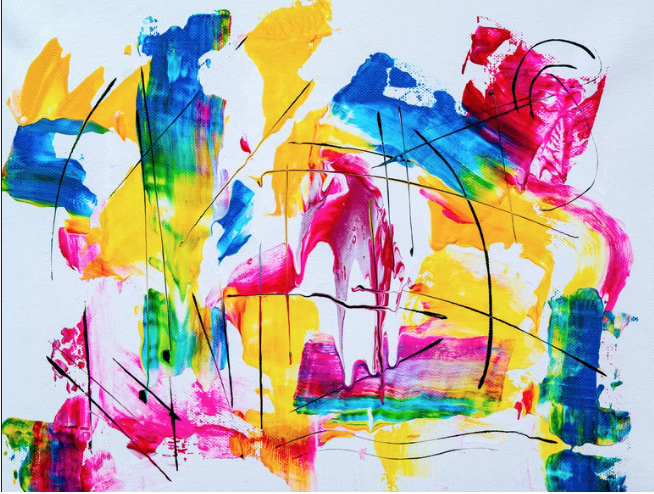- Table of Contents
“Unlock the Creative Power of AI: Unleash the Possibilities of Art, Music, and Literature!”
Introduction
The potential of Artificial Intelligence (AI) in art, music, and literature is an exciting and rapidly growing field. AI has the potential to revolutionize the way we create and experience art, music, and literature. AI can be used to create new works of art, music, and literature, as well as to analyze existing works and uncover new insights. AI can also be used to generate new ideas and concepts, and to explore the creative possibilities of art, music, and literature. AI can even be used to create interactive experiences that allow users to explore and interact with art, music, and literature in new and exciting ways. In short, AI has the potential to revolutionize the way we create and experience art, music, and literature.
Exploring the Possibilities of AI-Generated Music
Artificial Intelligence (AI) has been making waves in the music industry for some time now. AI-generated music is a relatively new concept, but it has the potential to revolutionize the way music is created and experienced.
AI-generated music is created using algorithms and software that can generate music without any human input. This technology can be used to create entire songs, or to generate new sounds and melodies. AI-generated music can also be used to create remixes of existing songs, or to create entirely new compositions.
The possibilities of AI-generated music are vast. AI-generated music can be used to create music that is more complex and intricate than what is possible with traditional music production techniques. AI-generated music can also be used to create music that is more emotionally evocative and expressive than what is possible with traditional music production techniques.
AI-generated music can also be used to create music that is more accessible to a wider range of people. AI-generated music can be used to create music that is more accessible to people with disabilities, or to people who are not familiar with traditional music production techniques.
AI-generated music can also be used to create music that is more personalized and tailored to individual tastes. AI-generated music can be used to create music that is tailored to a specific genre, or to a specific artist. AI-generated music can also be used to create music that is tailored to a specific mood or emotion.
The possibilities of AI-generated music are truly exciting. AI-generated music has the potential to revolutionize the way music is created and experienced. As AI technology continues to develop, the possibilities of AI-generated music will only continue to expand.
How AI is Changing the Way We Create Art
Art has been around for centuries, and it has been a way for people to express themselves and their creativity. However, with the advent of artificial intelligence (AI), the way we create art is changing. AI is being used to create art in a variety of ways, from creating digital paintings to generating music.
One way AI is changing the way we create art is through the use of generative art. Generative art is art that is created using algorithms and AI. Generative art can be used to create digital paintings, sculptures, and other forms of art. Generative art can be used to create art that is unique and unpredictable, as the algorithms used to create the art can generate different results each time.
Another way AI is changing the way we create art is through the use of AI-generated music. AI-generated music is created using algorithms and AI to generate music that is unique and unpredictable. AI-generated music can be used to create music that is similar to existing music, or it can be used to create entirely new music.
AI is also being used to create art in the form of digital sculptures. Digital sculptures are created using algorithms and AI to generate 3D models of sculptures. These sculptures can be used to create art that is unique and unpredictable, as the algorithms used to create the sculptures can generate different results each time.
Finally, AI is being used to create art in the form of digital photography. Digital photography is created using algorithms and AI to generate digital images. These images can be used to create art that is unique and unpredictable, as the algorithms used to create the images can generate different results each time.
AI is changing the way we create art in a variety of ways. From generative art to AI-generated music and digital sculptures, AI is being used to create art that is unique and unpredictable. As AI continues to evolve, it will continue to change the way we create art and open up new possibilities for artists.
The Impact of AI on the Future of Literature
The impact of artificial intelligence (AI) on the future of literature is a topic of much debate. AI has the potential to revolutionize the way literature is created, consumed, and shared. AI-driven technologies such as natural language processing (NLP) and machine learning (ML) are already being used to create new forms of literature, such as automated story-telling and poetry. AI can also be used to analyze existing literature, providing insights into the structure and meaning of texts.
AI-driven technologies can be used to create new forms of literature that are more interactive and engaging than traditional forms. For example, AI-driven story-telling systems can generate stories based on user input, allowing readers to explore different narrative paths and create their own unique stories. AI-driven poetry systems can generate poems based on user input, allowing readers to explore different poetic styles and create their own unique poems.
AI can also be used to analyze existing literature, providing insights into the structure and meaning of texts. AI-driven technologies such as NLP and ML can be used to identify patterns in texts, allowing readers to gain a deeper understanding of the literature they are reading. AI can also be used to identify similarities between texts, allowing readers to explore connections between different works of literature.
The potential of AI to revolutionize the way literature is created, consumed, and shared is immense. AI-driven technologies have the potential to create new forms of literature that are more interactive and engaging than traditional forms. AI can also be used to analyze existing literature, providing insights into the structure and meaning of texts. As AI-driven technologies continue to develop, the impact of AI on the future of literature will only become more profound.
Examining the Role of AI in the Art World
The art world is undergoing a transformation, as artificial intelligence (AI) is increasingly being used to create and analyze art. AI has the potential to revolutionize the way art is created, experienced, and valued. This article will explore the role of AI in the art world, and how it is changing the way art is created, experienced, and valued.
AI is being used to create art in a variety of ways. AI algorithms can be used to generate images, music, and even poetry. AI can also be used to generate art based on existing works, allowing artists to create new works based on existing pieces. AI can also be used to create art that is interactive, allowing viewers to interact with the artwork in real-time.
AI is also being used to analyze art. AI algorithms can be used to analyze the composition of a painting, or to identify the style of a particular artist. AI can also be used to identify patterns in artwork, allowing for more accurate analysis of artworks.
Finally, AI is being used to value art. AI algorithms can be used to analyze the market for art, and to predict the value of a particular artwork. This can be used to help buyers and sellers make more informed decisions about the value of a particular artwork.
In conclusion, AI is playing an increasingly important role in the art world. AI is being used to create, analyze, and value art, and is revolutionizing the way art is created, experienced, and valued. As AI continues to develop, it is likely that its role in the art world will continue to grow.
How AI is Revolutionizing the Creative Process
Artificial intelligence (AI) is revolutionizing the creative process, allowing for unprecedented levels of creativity and innovation. AI is being used to create art, music, and literature, as well as to develop new products and services. AI is also being used to automate mundane tasks, freeing up creative professionals to focus on more creative endeavors.
AI is being used to generate art, music, and literature. AI-generated art is created using algorithms that generate images based on input data. AI-generated music is created using algorithms that generate musical patterns and melodies. AI-generated literature is created using algorithms that generate stories and poems. AI-generated art, music, and literature can be used to create unique works of art, music, and literature that would not be possible without AI.
AI is also being used to develop new products and services. AI-powered algorithms can be used to analyze large amounts of data to identify patterns and trends. This data can then be used to develop new products and services that meet customer needs. AI can also be used to automate mundane tasks, such as data entry and customer service. This frees up creative professionals to focus on more creative endeavors.
AI is revolutionizing the creative process by allowing for unprecedented levels of creativity and innovation. AI-generated art, music, and literature can be used to create unique works of art, music, and literature. AI can also be used to develop new products and services and automate mundane tasks, freeing up creative professionals to focus on more creative endeavors. AI is transforming the creative process and allowing for unprecedented levels of creativity and innovation.
Conclusion
In conclusion, Artificial Intelligence has the potential to revolutionize the way we create art, music, and literature. AI can be used to generate new ideas, create new compositions, and even write stories. AI can also be used to analyze existing works of art, music, and literature to gain insights into the creative process. AI can help us to better understand the creative process and to create more meaningful works of art, music, and literature. AI can also help us to better understand the human experience and to create works of art, music, and literature that are more meaningful and emotionally resonant.


